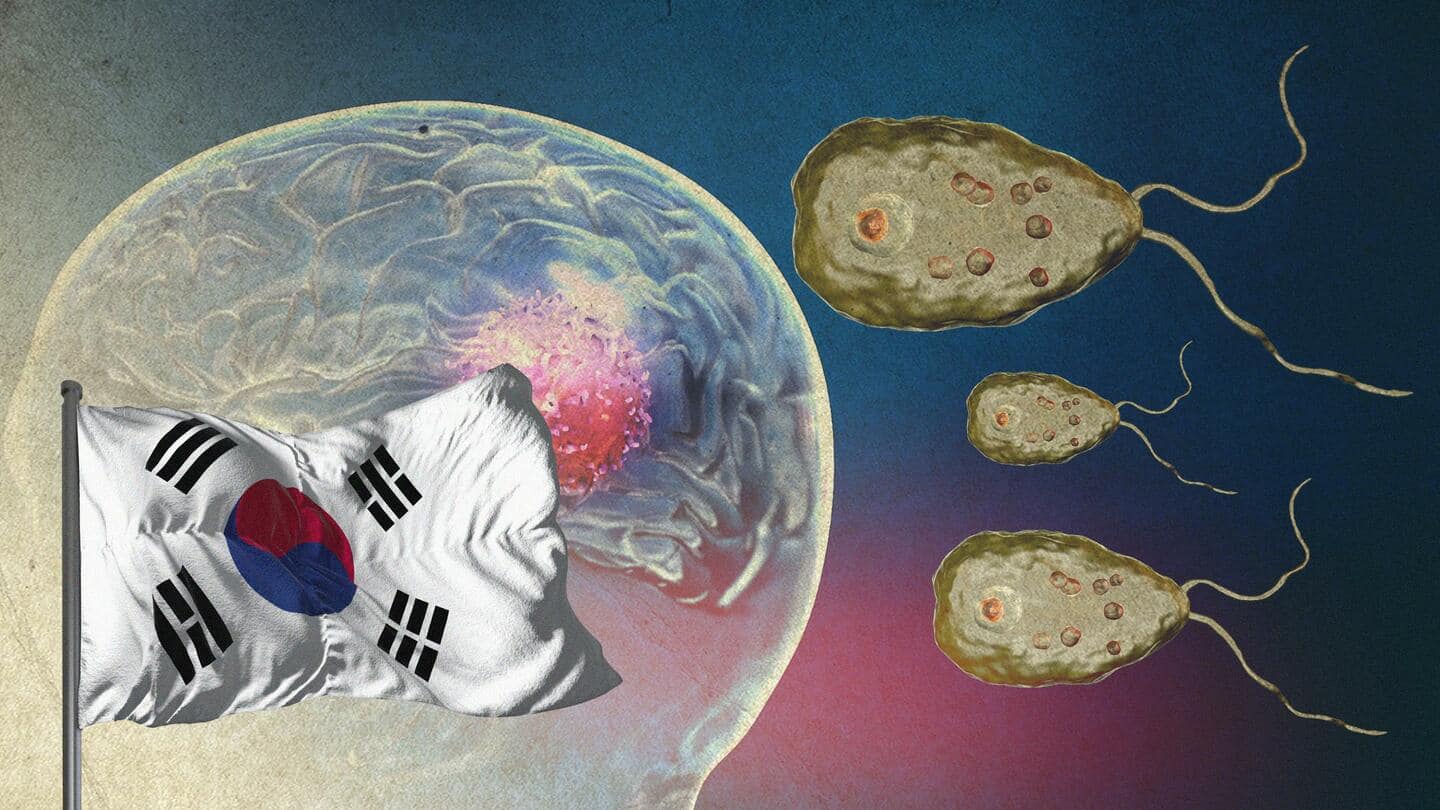
South Korea records first death caused by brain-eating amoeba
What's the story
South Korea registered its first death linked to Naegleria fowleri, commonly known as the brain-eating amoeba, when a man in his 50s, who recently visited Thailand, died on Wednesday.
The Korea Disease Control and Prevention Agency (KCDA) said he spent four months in Thailand and returned on December 10.
Upon his return, he exhibited symptoms like headaches, vomiting, fever, slurred speech, and neck stiffness.
Context
Why does this story matter?
Naegleria fowleri is a single-celled organism living in warm freshwater, typically found in ponds, lakes, and hot springs.
It isn't technically classified as an amoeba but a shapeshifting amoeboflagellate excavate.
It invades the body through the nose and travels through nerve fibers, feeding on cerebral tissues.
Although this is the first case reported from South Korea, India has recorded multiple deaths related to it.
Testing
Cause of death confirmed by genetic tests
The deceased reportedly showed symptoms upon arrival, following which he was admitted to the hospital the next day. He passed away around 10 days later.
The cause of the death was confirmed by conducting genetic tests on three types of pathogens that cause Naegleria fowleri.
Tests showed that a gene in the man's body was 99.6% identical to one found in a meningitis patient.
Details
Not caused by drinking contaminated water
Though KCDA hasn't identified the precise method of transmission, it said swimming in contaminated water or nasal rinsing with it are two main sources of infection.
Drinking contaminated water, however, doesn't result in infection. It is caused when the pathogen reaches the brain by entering the nose and traveling along the olfactory nerve tissue.
Once infected, it progresses rapidly, causing hallucinations, seizures, and coma.
Background
Fatal brain infection discovered in US in 1937
Naegleria fowleri causes a brain infection called primary amoebic meningoencephalitis (PAM). The fatal disease was first discovered in the United States in 1937.
Until 2018, 381 cases of Naegleria fowleri infection were reported worldwide, mainly in India, the US, and Thailand.
Human-to-human transmission is reportedly low, but out of hundreds of known cases, only four cases of survival have been reported in India.